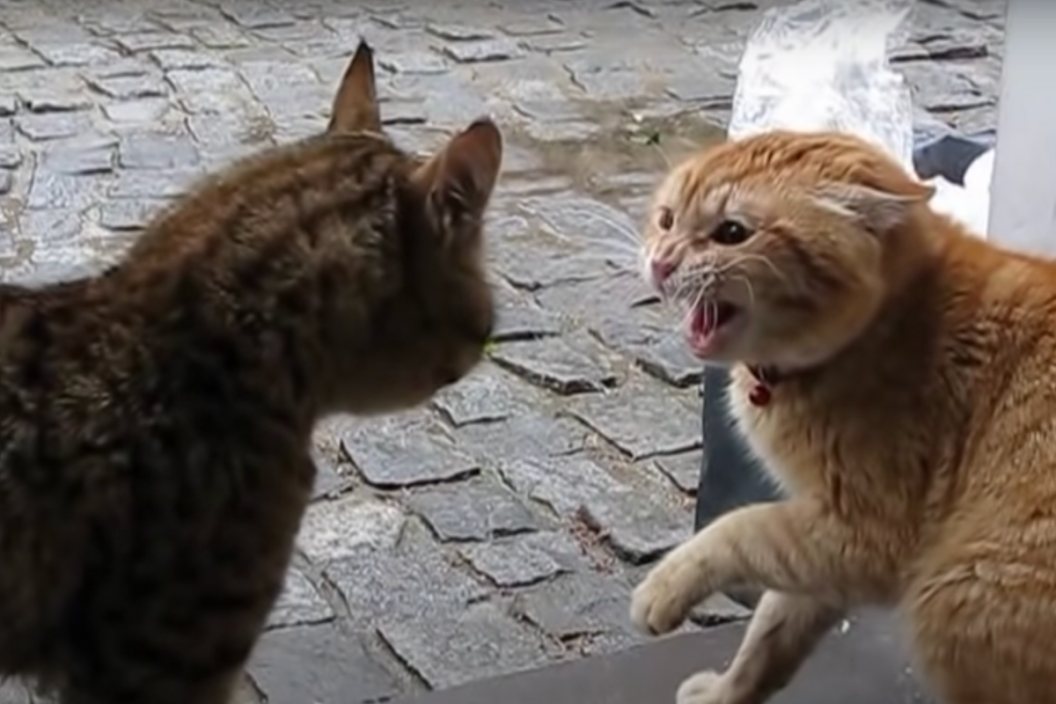Is your cat growling, hissing, or yowling? What do these angry cat noises mean?
Some cats are more vocal than others, but all cats vocalize their emotions and moods with their owners. Meowing, chirping, trilling, and purring may be the most common cat sounds, but what are some angry cat noises, and what do they mean? If you hear your cat growling, hissing, spitting, or yowling, this means that your cat is upset, anxious, or in danger.
What Sounds Does an Angry Cat Make?
Growling
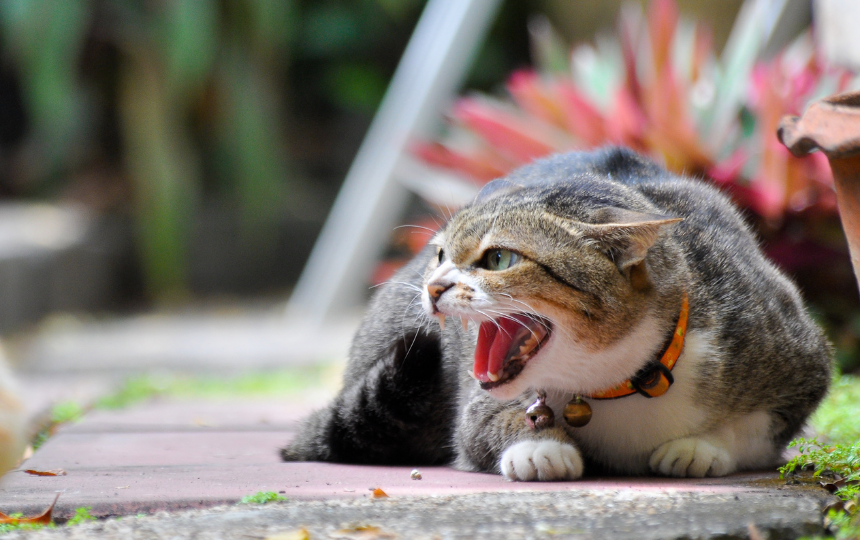
Growling is often the first audible indication that your cat is upset. An angry cat may follow up growling with an angry meow that sounds like a normal meow, but with a throaty gravel sound added. When the cat's meow becomes high-pitched and multisyllabic as standard angry cat noises, it means that they are under extreme stress. Watch their body language and attempt to carefully remove them from the situation if necessary.
Hissing or Spitting
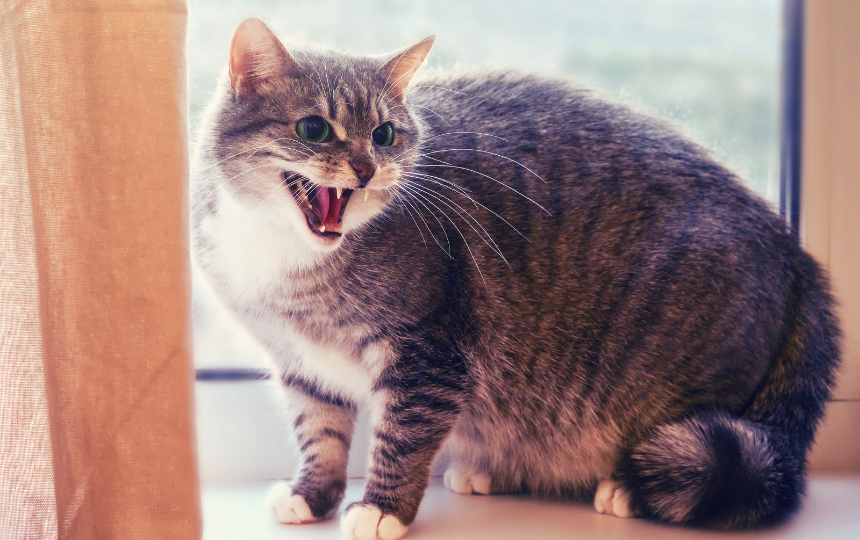
Hissing is a cat's instinctive reaction to something he perceives to be a danger. If your cat is hissing at a different cat and the other cat is hissing or spitting back, they may be about to engage in a catfight. Approaching a cat hissing is not a good idea. It's best to give him some room while he calms down and regains his sense of safety. Abused, stray, or feral cats are more likely than a well-adjusted pet to go into "hissing mode." The sound is the feline equivalent of a middle finger, and it indicates that this enraged cat is ready to fight. If you see two cats fighting, back off and do whatever you can to eliminate the perceived danger to your pet. The hiss may also indicate that your dog is overly friendly with your feline, so give him some space to calm down.
Yowling
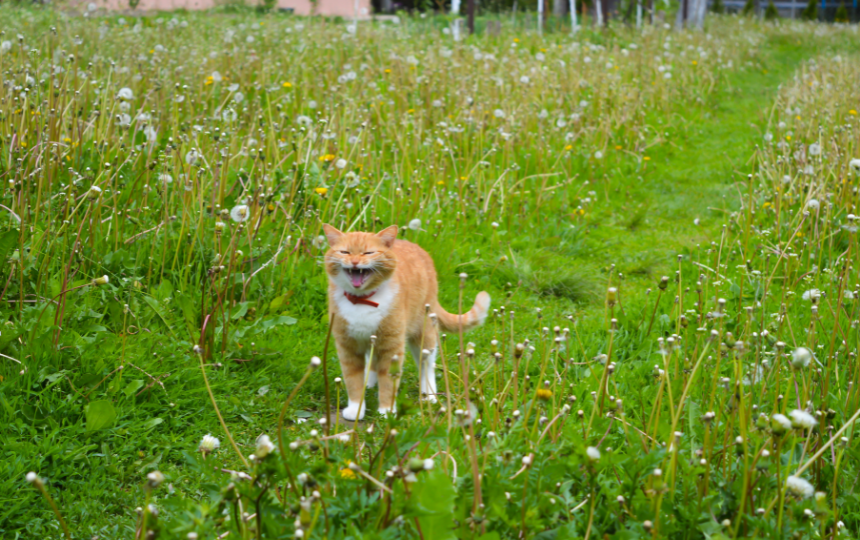
The yowl is typically an angry cat noise used for cat-to-cat contact. Sometimes it can simply mean "I don't want you around my house." It can also happen when a cat isn't feeling well or when their senses or cognitive abilities deteriorate. Many consider yowling to be the same as caterwauling, depending on the situation. Some cats can yowl simply because they are bored. If your cat starts to yowl incessantly, look for signs of illness— a trip to the vet might be in order. If your cat has not yet been altered, schedule an appointment as soon as possible, particularly if you want your cat to go outside. Unaltered cats will caterwaul and scream at each other to find a partner.
Meowing, Chirping, Trilling, and Purring
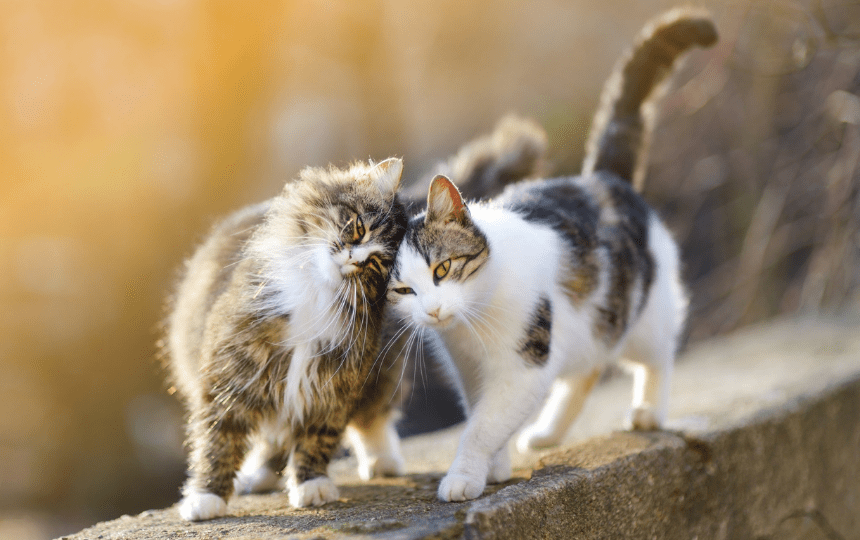
In spite of angry cat noises existing, many cats are very affectionate and you'll rarely hear anything negative from your feline friend. The most common cat sounds coming from your feline friend should be happy noises, such as meowing, chirping or trilling, and purring. Adult cats do not meow to communicate with each other. Wild cats use meowing as kittens to communicate with their mothers. However, since cats treat us as their eternal caretakers, they continue to use meow sounds to communicate with us. Similarly, chirps and trills are used by kittens and cats to get us to pay attention to them and often so they can lead us somewhere, like their food bowl. Cats purr when they are pleased, such as when you are petting them or they are kneading a blanket in your lap.
Does your cat like to talk to you? Share with us on the Wide Open Pets Facebook page!
This article was originally published April 13, 2021.
